Manchester Hill Heroics of the Highest Order
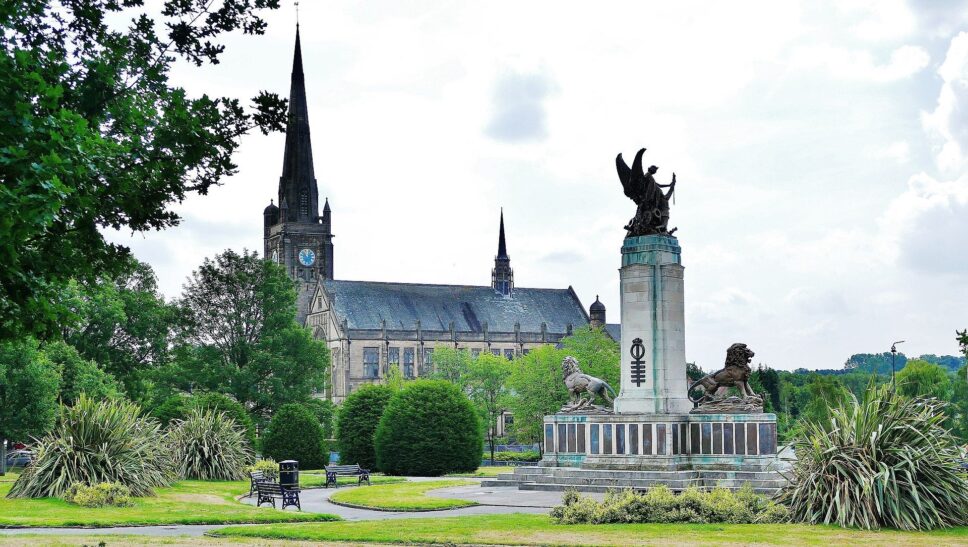
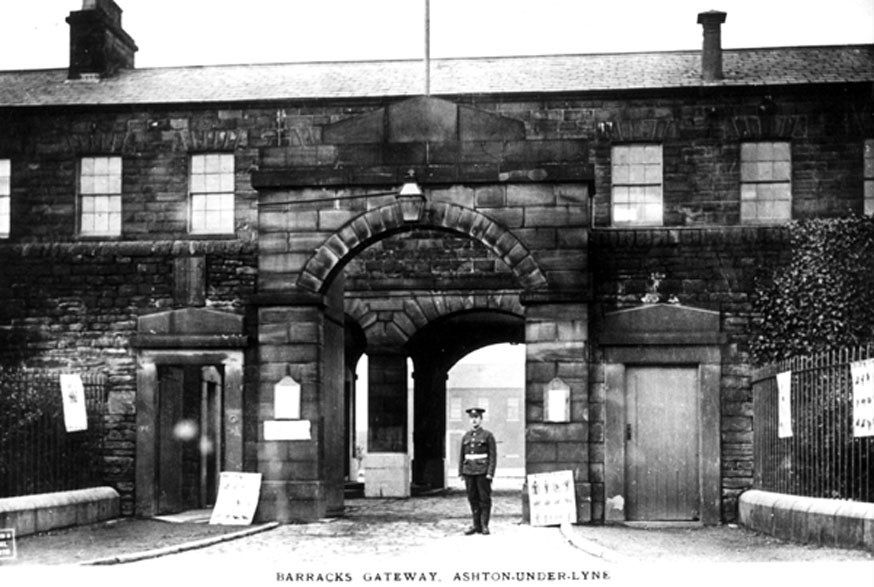 The Battle of Manchester Hill is a lesser-known part of The First World War and came up as part of our last blog about the people of Ashton under Lyne and the Great War. The 16th Battalion of The Manchester Regiment held the hill above St Quentin in France. The hill is above the French Village of Francilly Selency and gave the 16th Battalion an excellent view of the German Positions in St Quentin.
The Battle of Manchester Hill is a lesser-known part of The First World War and came up as part of our last blog about the people of Ashton under Lyne and the Great War. The 16th Battalion of The Manchester Regiment held the hill above St Quentin in France. The hill is above the French Village of Francilly Selency and gave the 16th Battalion an excellent view of the German Positions in St Quentin.
The position gave British and French Battalions what seemed to be an advantage; but unlike many of the Trenches, on this hill, they were not continuous. There were breaks in the line of trenches that on the 21st March 1918 would allow the Kaiser’s troops to break through.
Manchester Hill George Kennedy
The reason we have returned to this historic event is that as mentioned in a previous Blog Ashton under Lyne History and Tragedy; George Kennedy of Hurst Ashton under Lyne fought and was captured during this engagement. For those that have not read the previous offering, George only a month before had been Court Martialled for being drunk on duty.
His return to active duty almost certainly coincided with the attack by German troops on the 21st March 1918; which resulted in his capture and the end of his influence on the outcome of the war. In truth, a single individual could not end such a huge conflict, but some officers and men played a huge role in the outcome.
George Kennedy was one soldier who experienced this terrible event to its close; many others did not survive this terrible day, including the commanding officer Lieutenant Colonel Wifrith Elstob. Who before enlistment in the British Army was a Teacher from Chelford in Cheshire.
Lieutenant Colonel Wilfrith Elstob and the Manchester’s
On the morning of the Spring offensive by German troops on 21st March 1918, 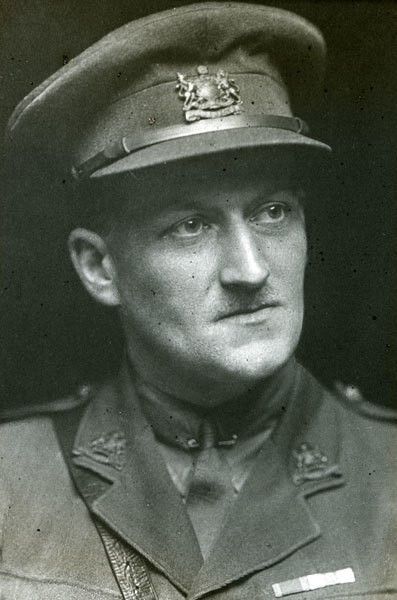 it was reported; that fog hampered the view of British and French divisions in the area around St Quentin. The point named Manchester Hill was held by the 16th Battalion commanded by a brave soldier who was promoted from the ranks in 1914. Lieutenant Colonel Wilfrith Elstob having been issued with orders that included the phrase “The Manchester Regiment will defend Manchester Hill to the last” faced the might of the German Spring offensive.
it was reported; that fog hampered the view of British and French divisions in the area around St Quentin. The point named Manchester Hill was held by the 16th Battalion commanded by a brave soldier who was promoted from the ranks in 1914. Lieutenant Colonel Wilfrith Elstob having been issued with orders that included the phrase “The Manchester Regiment will defend Manchester Hill to the last” faced the might of the German Spring offensive.
This gallant officer is reported to have said on the eve of the battle “If I die, do not grieve me; for it is with the sixteenth I would lay down life”. As the German army attacked Manchester Hill his rallying cry to his officers and men was “Here we fight and here we die”. The onslaught began with artillery bombarding the positions on the hill’ which greatly outnumbered what our British troops could offer in return.
Manchester Hill Under Fire
Following this the German Spring Offensive began with the attack on the positions on Manchester Hill; named by the 2nd battalion following its capture from the Germans in April 1917. It is worth noting that across the Spring Offensive, the British and Germans each lost an average of 11,000 officers and men per day. Putting that in perspective, in the first four days of this slaughter; it was equal to twice the present population of Ashton under Lyne.
The Attack on Manchester Hill began at 06:30 am on 21st March 1918, with artillery fire from the German positions in St Quentin. An hour later the Commanding Officer having visited the positions of his troops on the hill had a decision to make. At 07:30 am he moved his base of operations to the centre of Manchester Hill where he was flanked by four platoons; two on either side. These were under the command of Captain Ashe and Captain Guest who were supported by Captain Heywood and Captain Pritchard.
Manchester Hill Surrounded
At 8:00 am the shelling of the British positions intensified and communications between the three parts of the 16th Battalion was severed. The only way of communication was through runners and soldiers carrying messages through the carnage of shells and gunfire. It is reported that by 8:30 am the two positions flanking their commanding officers’ central position were surrounded by the elite troops of the Kaisers army.
By 9:00 am they were fighting at close quarters with the enemy troops, bravely battling against overwhelming odds; being vastly outnumbered. The battle continued throughout the morning of the 21st of April until the fog finally lifted at 11:30 am. At this point, their hopeless situation was confirmed with the site of the enemy on all sides. German troops in vast numbers were advancing up the hill from St Quentin and at this point, all the defenders must have realised that their fate was sealed.
This, however, did not stop them as they had no intention of surrendering to the Kaiser’s Army. At this point, the elite troops were sent in to finish the job and a quick-thinking Lieutenant Colonel Elstob set up a bomb block between the enemy and his command point, to make a final stand against the inevitable. Despite being wounded Wifrith Elstob stood firm against the bombing party that was attacking his position. It is reported that with his revolver alone he shot an entire German bombing party.
Manchester Hill Last Stand
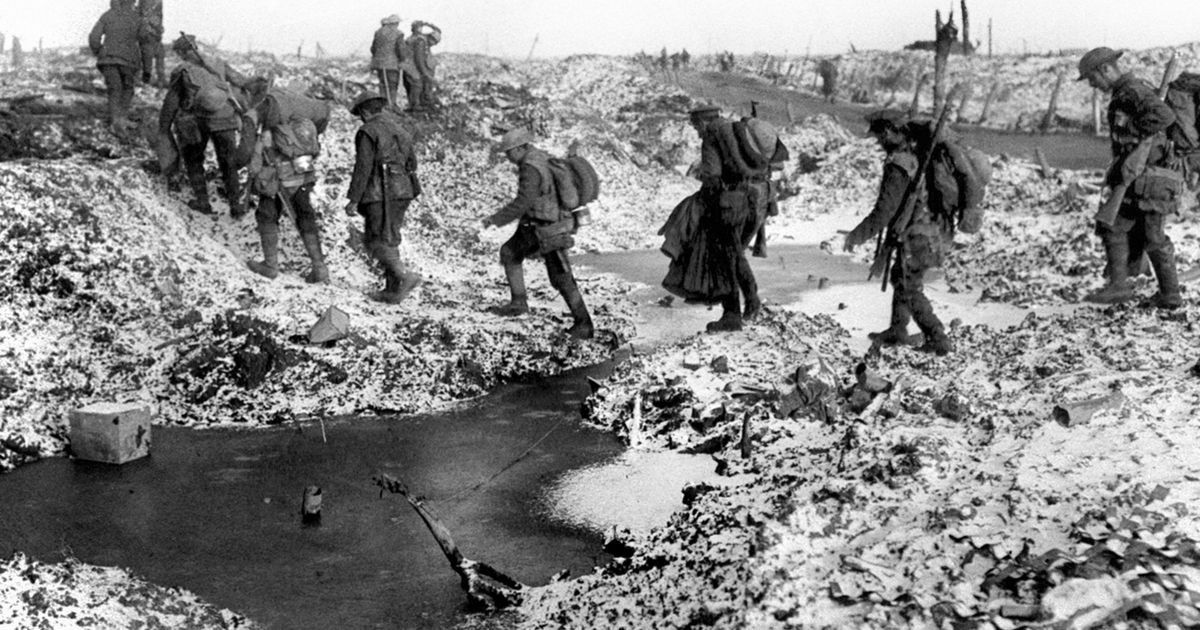 At this point the enemy troops on Manchester Hill attacked the last of the surviving 16th Battalion’s men on mass; Lieutenant Colonel Wifrith Elstob was wounded but returned to the fight as soon as his wounds were dressed. They had by now retreated to the original HQ in a quarry; which can still be seen today if you visit the area. A report received at the time described Lieutenant Colonel Elstob being blown five yards by a German shell: and he is reported to have said “They can’t damn well kill me” when he got back to his feet.
At this point the enemy troops on Manchester Hill attacked the last of the surviving 16th Battalion’s men on mass; Lieutenant Colonel Wifrith Elstob was wounded but returned to the fight as soon as his wounds were dressed. They had by now retreated to the original HQ in a quarry; which can still be seen today if you visit the area. A report received at the time described Lieutenant Colonel Elstob being blown five yards by a German shell: and he is reported to have said “They can’t damn well kill me” when he got back to his feet.
Over seven hours later at 14:00 pm that afternoon, nearly all the 16th Battalion were either dead or wounded, but what was left were still fighting. Their orders were to hold Manchester Hill to the last man and they came very close to doing this. By 15:30 pm the fighting was hand to hand and the battle was almost lost. Lieutenant Colonel Wifrith Elstob spoke his last words to the area’s military headquarters; he said that very few were left, and the end had nearly come. To his men, his rallying call was “Do not lose heart, fight on”.
At 4:00 pm on the 21st of March 1918, the German troops made their final assault on the brave men on Manchester Hill. The Germans asked Lieutenant Colonel Wifrith Elstob to surrender and after he said “never” they shot him dead. Never have I read of such bravery by an Officer or such loyalty from his men that they would lay down their lives in a battle that could never be won.
The exhausted and wounded remnants of the 16th Battalion of the Manchester Regiment finally surrendered; I can only imagine the despair they felt at the loss of their deeply loved and respected commanding officer. It was reported at the time that of 168 officers and men, only 17 survived the Battle of Manchester Hill; and although the cost was great. The 16th Battalion had done what they had set out to do and delayed the German advance on the first day of the Spring Offensive.
A shining Example 16th Battalion Manchester Regiment
Although across the entirety of the First World War, there are almost countless acts of conspicuous bravery from officers and men on the battlefield. The Battle of Manchester Hill stands out as a shining example of the British spirit and should never be forgotten. 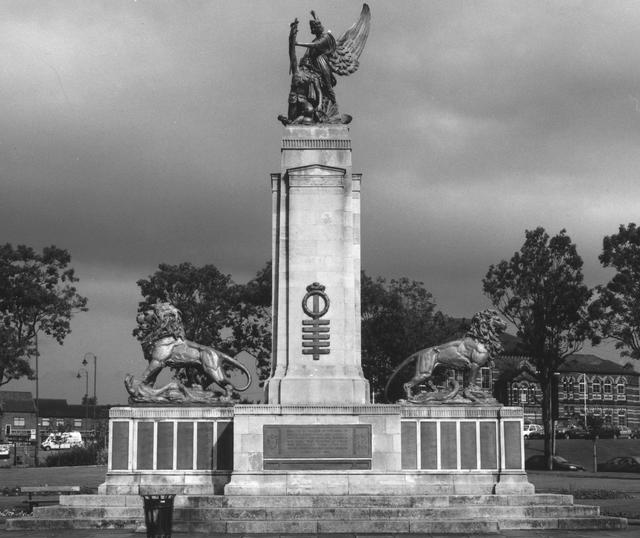 The 151 brave men who died on the 21st of March 1918 are a small part of the total number that gave their lives in defence of the King and Country. Their sacrifice was remembered in 2018 at a service a century following the original commemoration on 15th April in Manchester Cathedral.
The 151 brave men who died on the 21st of March 1918 are a small part of the total number that gave their lives in defence of the King and Country. Their sacrifice was remembered in 2018 at a service a century following the original commemoration on 15th April in Manchester Cathedral.
For Ashton under Lyne which I write about so often as part of my blogs, the part played by the local community was small but no less important. The soldiers that died from Ashton under Lyne were Private Henry Clough and Private George Richardson; from Audenshaw Private Tom Lord and Glossop Corporal Jessie Pemberton. These local heroes gave their lives and their names can be found on the Pozieres Memorial in France.
In 1919 Lieutenant Colonel Wifrith Elstob was honoured for most conspicuous bravery, devotion to duty and self-sacrifice in the face of the enemy. At a ceremony on 24th July that year, his father John Elstob was presented with his son’s Victoria Cross by King George V. This medal though surely is representative of the whole Battalion’s bravery in the face of certain death at the Battle of Manchester Hill.
May I take this opportunity to thank The Manchesters.org for the detailed information provided that made it possible to write this blog; and to Battlefields & Manchester City Council for additional information.
Get started in seconds!
Save your details, view past orders, and enjoy a faster checkout every time.